What is the Best Material to Use
for an Outdoor Kitchen Worktop?
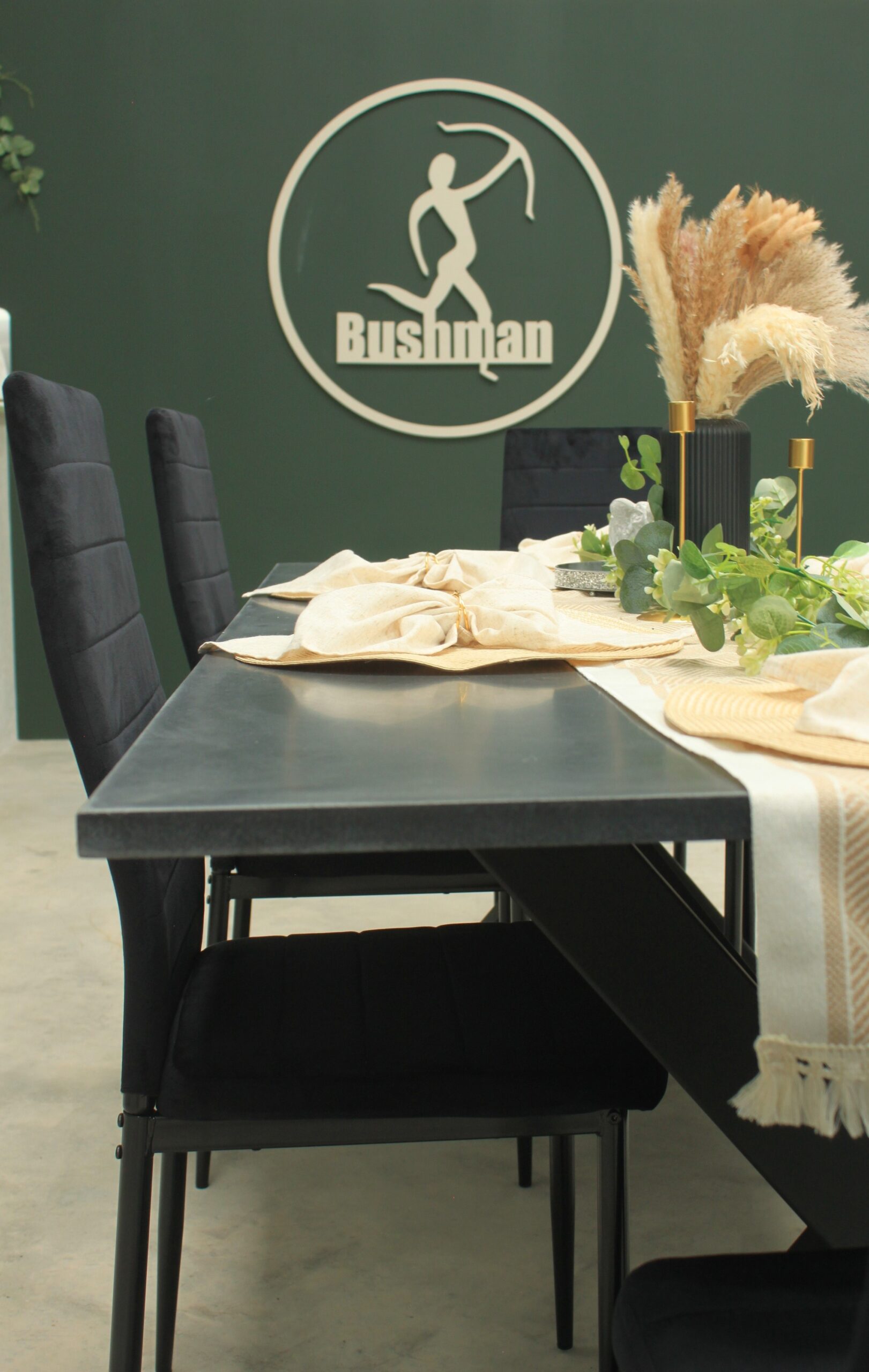
Creating the perfect outdoor kitchen is a dream for many homeowners, especially in regions like Norfolk and Suffolk, where we experience a variety of weather conditions that can impact the longevity and appearance of outdoor spaces. At Luxury Outdoor Design, we specialise in designing and creating luxury gardens, outdoor kitchens, and pergolas, helping homeowners bring their vision to life. But when it comes to outdoor kitchens, one crucial decision stands out: What is the best material for an outdoor kitchen worktop?
An outdoor kitchen is exposed to the elements all year round, so selecting a material that can withstand the local variable weather conditions, while still looking stunning, is essential. In this blog post, we will compare four popular materials used for outdoor kitchen worktops: concrete, quartz, porcelain, and granite. We’ll explore the pros and cons of each to help you make an informed decision that fits your style, budget, and practical needs.
1. Concrete Worktops
Pros: Concrete is a versatile material that can be customised in terms of colour, texture, and finish. It’s a popular choice for homeowners looking for a sleek, modern look, with the ability to design a unique surface for their outdoor kitchen. Concrete is also durable and heat-resistant, making it perfect for outdoor cooking areas. It is also fairly affordable compared to other high-end materials.
Cons: While concrete is strong, it can be prone to cracking if not properly installed and maintained. Concrete is porous, meaning it can absorb stains from oils, acids, or other liquids, which can be an issue if not sealed regularly. We seal all worktops made by ourselves and recommend having them resealed at least once to twice a year depending on the level of usage it is exposed to.
Price: Concrete worktops are generally more affordable, but costs can rise depending on the level of customisation and the type of finish you choose.
Weather Resistance: Concrete can handle the outdoor elements well, but it is best to seal the surface to avoid damage from moisture or extreme temperatures.
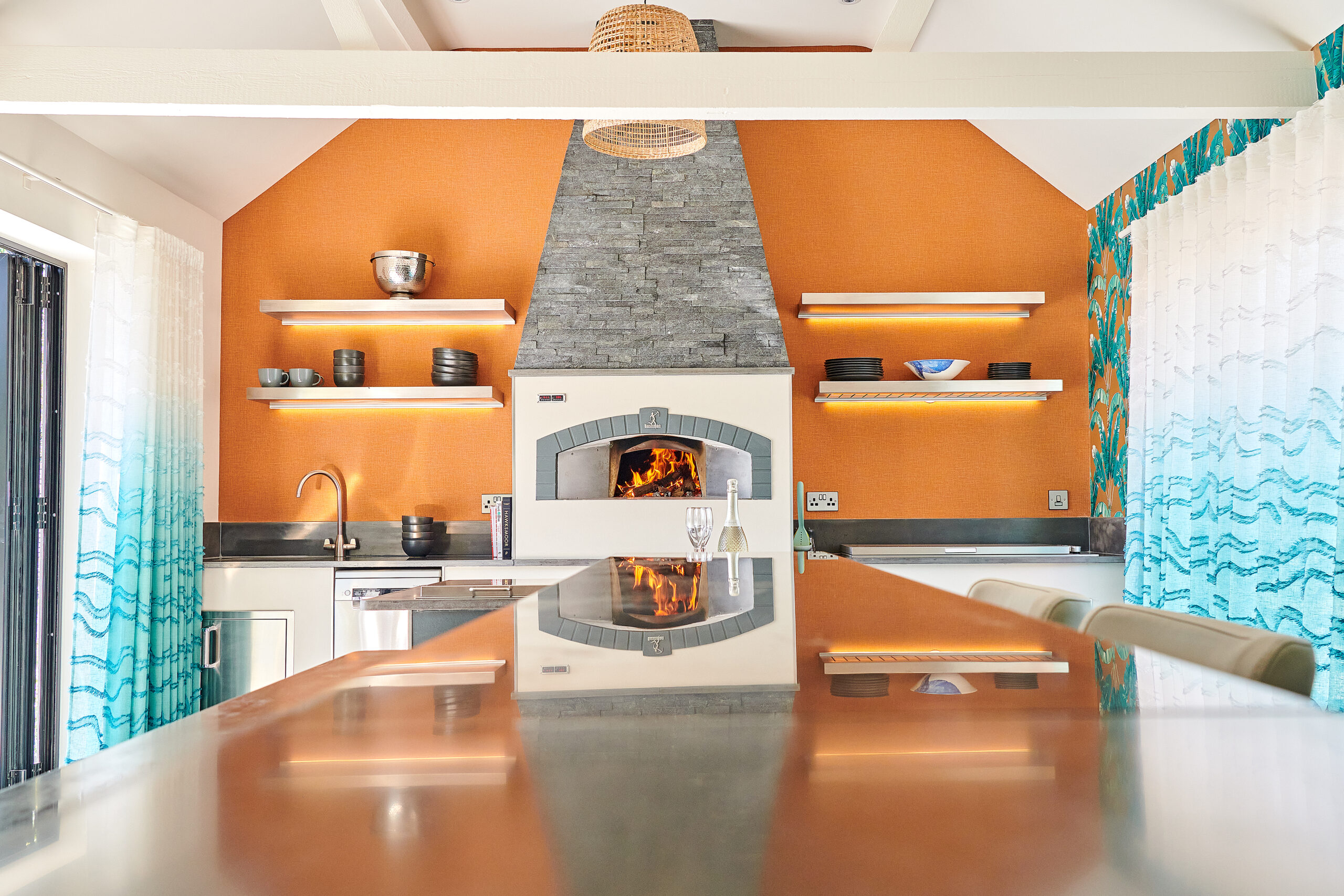
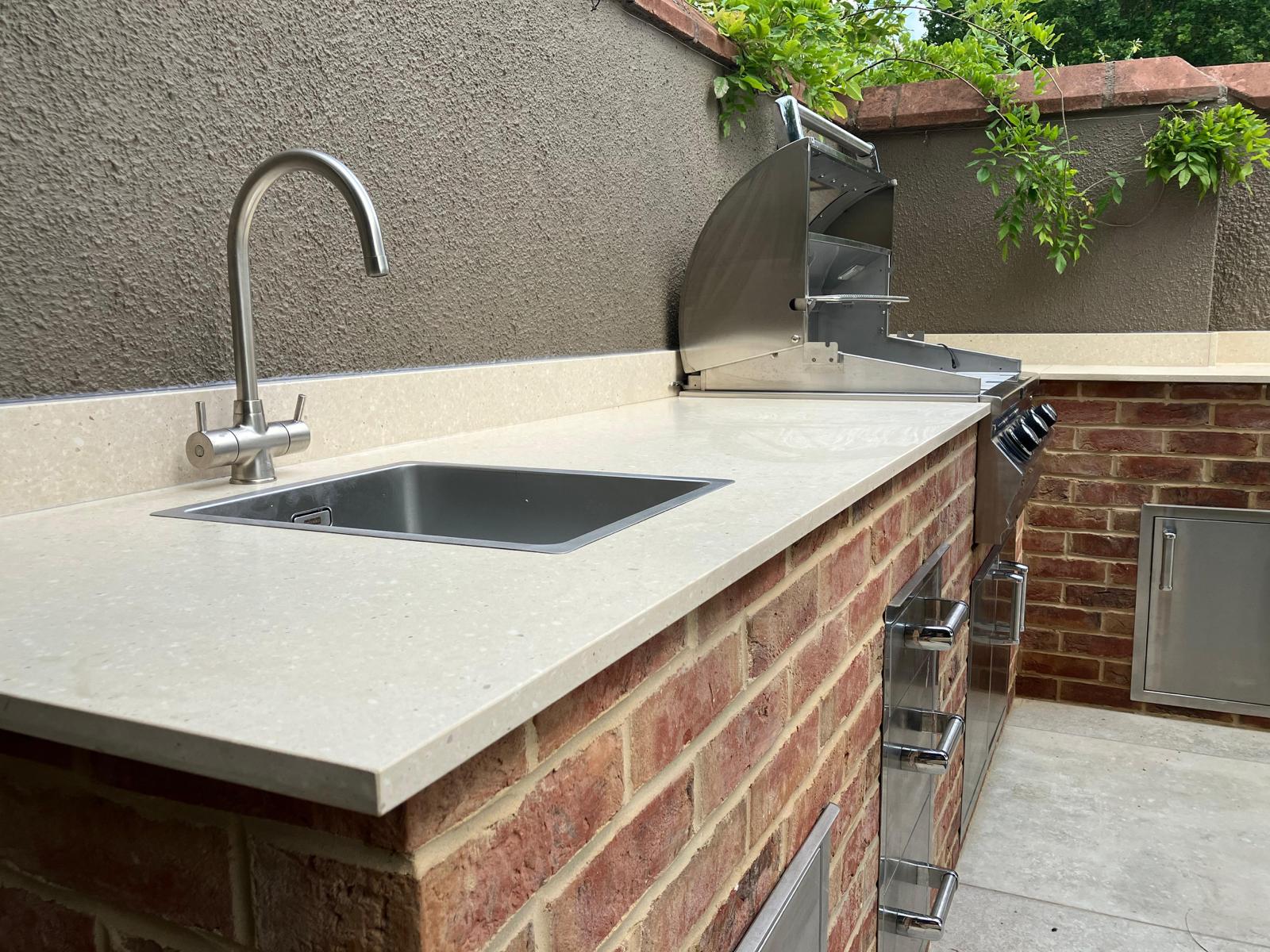
2. Quartz Worktops
Pros: Quartz worktops are engineered from natural stone and resin, creating a highly durable, non-porous surface that resists staining, scratching, and fading. This makes quartz a great choice for outdoor kitchens, as it maintains its appearance over time, even when exposed to the elements. Quartz worktops are available in a variety of colours and patterns, allowing for a range of design options.
Cons: One downside of quartz worktops is that they can be less heat-resistant than other materials, meaning you may need to be careful with placing hot pots or pans directly on the surface. They can also be more expensive compared to concrete and granite options.
Price: Quartz is generally priced similarly to handmade concrete but offers excellent durability and low maintenance in return.
Weather Resistance: Quartz is relatively weather-resistant and does well in outdoor kitchens. However, it should still be protected from prolonged direct sunlight, which could lead to discolouration over time.
3. Porcelain Worktops
Pros: Porcelain is a fantastic material for outdoor kitchen worktops due to its high resistance to heat, moisture, stains, and UV rays. It’s incredibly durable and, thanks to its non-porous nature, doesn’t require sealing, making it a low-maintenance option. Porcelain is available in a wide range of colours, textures, and designs, which means it can complement a variety of garden styles. It is also incredibly resistant to scratching, making it ideal for a busy kitchen environment.
Cons: While porcelain is highly durable, it can be brittle and may crack or chip if struck by a heavy object. Additionally, some porcelain options can be quite expensive, especially when opting for high-end designs or larger slabs.
Price: Porcelain is often priced in the mid-range but can be expensive depending on the specific design and size.
Weather Resistance: Porcelain has excellent weather resistance, making it one of the best materials for outdoor kitchens, even in Norfolk’s sometimes unpredictable weather.
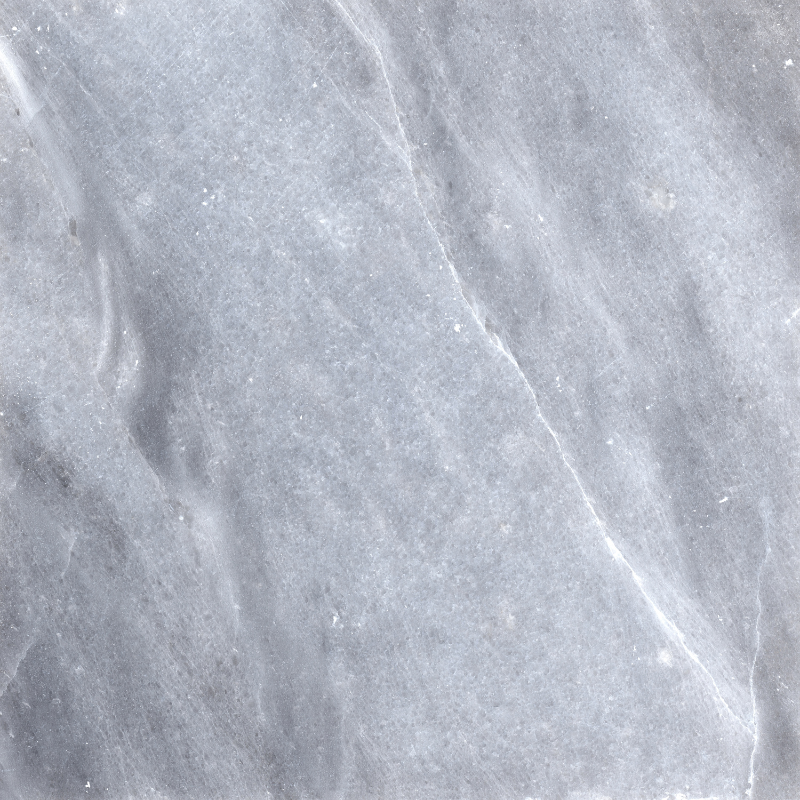
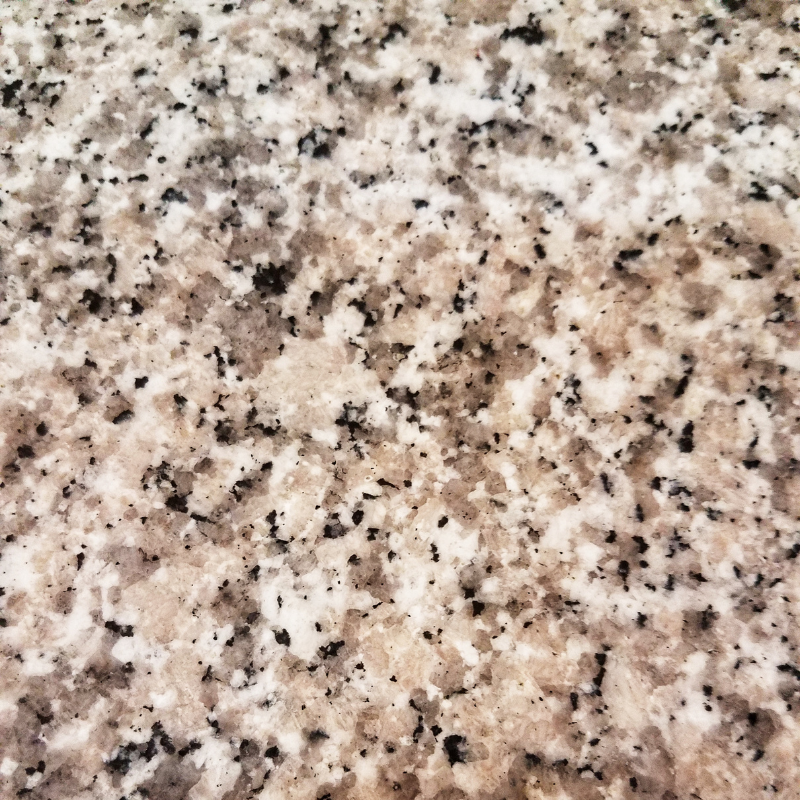
4. Granite Worktops
Pros: Granite is a timeless, luxurious material that offers both beauty and strength. It’s heat-resistant, scratch-resistant, and highly durable, making it an excellent choice for outdoor kitchens. Available in a wide range of colours and patterns, granite can bring a touch of elegance to any outdoor space. Its natural stone properties make it incredibly resilient to weather conditions, especially when compared to other materials.
Cons: The primary downside of granite worktops is their weight and cost. They are typically more expensive than concrete or quartz, and the installation process can be more involved due to the heavy nature of the material. Additionally, granite needs to be regularly sealed to maintain its resistance to stains and weathering.
Price: Granite is one of the more expensive options for outdoor kitchen worktops, but it’s often considered a long-term investment due to its durability and timeless appeal.
Weather Resistance: Granite is incredibly weather-resistant, standing up well to rain, sun, and frost. It’s an ideal option for outdoor kitchens in Norfolk and Suffolk, where the climate can vary.
Which Material is Best for Your Outdoor Kitchen Worktop?
Choosing the best material for your outdoor kitchen worktop depends on your budget, design preferences, and how much maintenance you’re willing to commit to. If you’re looking for a high-end, durable material that can withstand the test of time, granite or porcelain might be your best bet. Both materials are built to endure Norfolk’s varied weather, offering excellent heat and moisture resistance.
If you’re after something more affordable and flexible in terms of design, concrete is a solid choice, though it will require more maintenance and care to protect it from wear and tear. Quartz offers a good balance between durability and design versatility but comes at a higher cost.
Conclusion:
No matter which material you choose for your outdoor kitchen worktop, it’s important to remember that protecting your investment is key. To ensure your outdoor kitchen stays in pristine condition, we recommend either covering it with a high-quality cover or installing a louvered roof pergola. A louvered roof pergola not only adds an elegant touch to your outdoor space but also provides the protection needed from the elements, extending the lifespan of your worktop and other kitchen components.
At Luxury Outdoor Design, we offer expert design and installation services to help you create the perfect outdoor kitchen. Whether you’re in Attleborough, Norfolk, or elsewhere in the region, we can provide tailored advice and high-quality solutions for your outdoor living space. Get in touch today to find out more and turn your dream garden into a reality!

